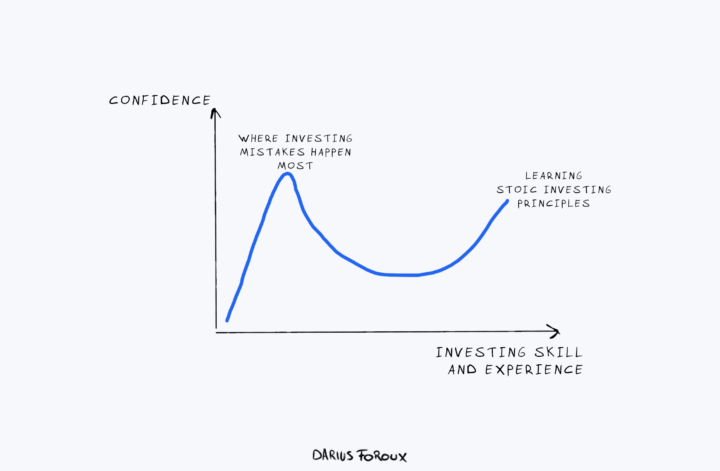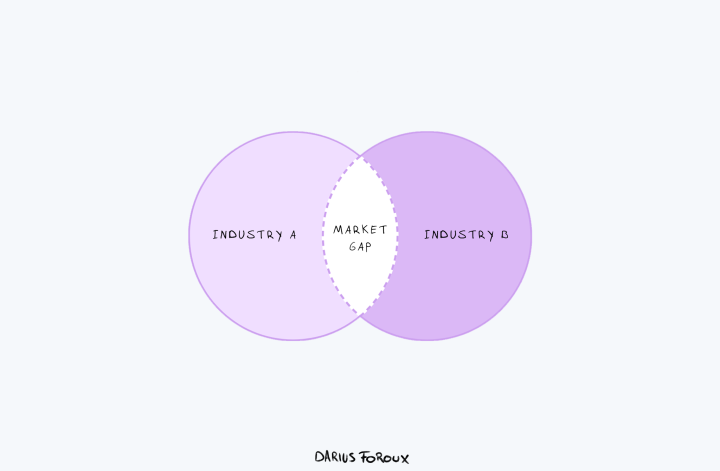I came across a study the other day that asked people where they burned most of their hard-earned money.
The answer of over 64 million Americans? “Having fun.” I don’t think there’s much wrong with having fun. But when we spend too much on having fun, we often end up regretting it when we suffer financially.
The problem is especially when we spend money we don’t have. Looking back, most people don’t think it’s worth it to work yourself into debt.
When we overspend, it’s usually for leisure or on things we desire, but don’t really need. It’s a classic money mistake that many of us have made.
It really makes a difference when we stop spending money on the things we don’t need. When we do that every day, and if we invest our money wisely, we build inevitable wealth.
But there are also other money mistakes we often overlook. Some may seem small, but they leave a big impact. Here’s what they are and how you can start fixing them today.
Mistake #1: Not having a clear financial goal
When we’re too busy with work and other tasks, we often don’t want to take the time to sit down and strategize our finances. But when you’re unclear about your financial goals, it’s hard to take your money seriously.
What do you want to achieve financially? And where are you on your journey?
When you know which phase you’re in, you can be more clear about what you really need. In my personal finance guide, I talk about the four phases of personal finance:
- From nothing to something — this is when you’re living paycheck to paycheck
- Gaining traction — you have at least one month’s worth of expenses saved
- Having peace of mind — you have a full emergency fund
- Financial freedom — you have enough cash and investments to cover your cost of living
When you don’t know which phase you’re in, you’ll tend to make the impulsive decisions that get you further from financial freedom.
Like taking out a car loan when you don’t have an emergency fund if you suddenly lose your job.
As the pandemic and recent worries about recession showed us, job security isn’t so secure after all. This leads us to the next mistake.
Mistake #2: Not having an emergency fund
2020 taught us that there’s no such thing as a “secure” income source. Many people got laid off during the pandemic. And now that things are starting to get back to normal, the economy looks like it’s going to fall into a recession.
Emergencies, disasters, pandemics, wars — these things happen. It’s not a matter of if, but when. And when you don’t have extra cash set aside, you can only rely on more expensive ways to survive.
This could mean taking out a cash advance, racking high-interest credit card debt, relying on payday loans, and so forth.
Now, don’t go saving a huge chunk of your money immediately. A friend of mine once binge-watched some motivational vlogs and tried to save 80% of his salary (after bills and utilities) to build his emergency fund.
The result? He splurged on the 3rd month as a “reward.” And almost zeroed his funds on the 5th.
Saving is a habit. And just like any habit, the best way to start is to start small.
Mistake #3: Relying on a single income stream
A higher salary won’t necessarily give you freedom; having more options does.
It’s easy to live in perpetual fear of your employer or customer if you only have one income stream. You know your income is vulnerable. When you’re in fear, it’s easy to say yes to everything and have people walk all over you.
But it doesn’t have to be that way. You can build a side business, work in a field with lots of job prospects, or invest your money in stocks or real estate.
Of course, these things don’t happen overnight. So it’s a matter of investing in yourself and spending less time and attention on consumerism.
When you have more options, you feel more at ease. Best of all, you control your life. Now, isn’t that something we all want?
Mistake #4: Buying a car you don’t need
Speaking of consumerism, let’s talk about cars for a bit.
Years ago, I badly wanted to buy a BMW 3 series coupe. But I didn’t have the money. I was looking all over for ways to get it until I realized it wasn’t really the car I wanted.
The main reason I wanted that BMW was to impress others. I thought I’d become more popular with people when I had a nice-looking car.
Here’s a good rule of thumb when making a car purchase: If there’s a car you absolutely want, go for it but only if you can pay in cash. Without relying on a loan or your emergency fund.
If you need to loan for a car, then get one that fulfills only your most basic needs. Something that saves on fuel, insurance, and maintenance. And your ego or impulse to please other people shouldn’t factor into the decision.
Mistake #5: Not investing when you can
When you don’t let your money work for you; you end up working for your money and for much less value. As time passes, inflation goes up, and the need to earn more pressures us.
With passive investing, you can use the power of compounding. How do you know when you’re ready to invest?
When you’re no longer financially bleeding. And you have six months’ worth of expenses — a full emergency fund — safe in a savings account.
Unless you’re a professional trader and you know what you’re doing, investing is not your income source.
That’s what your job and/or business are for. Instead, you can look at investing as a passive means to long-term wealth.
Small things add up
This is true both for losing and making money.
Your “little” subscriptions on streaming apps, those times you go out to eat when you could’ve made a more decent meal at home, those “cheap” things you bought online out of boredom — these add up and make you poorer.
Likewise, you can also start earning six figures a year or hitting your financial goals when you do small things to help your finances every day. And no, traditional budgeting is not the solution.
Most of us have a consumer mindset. But this can be changed. As John Bogle, the founder of the first publicly-available index fund said, “‘Enough’ is $1 more than you need.”




